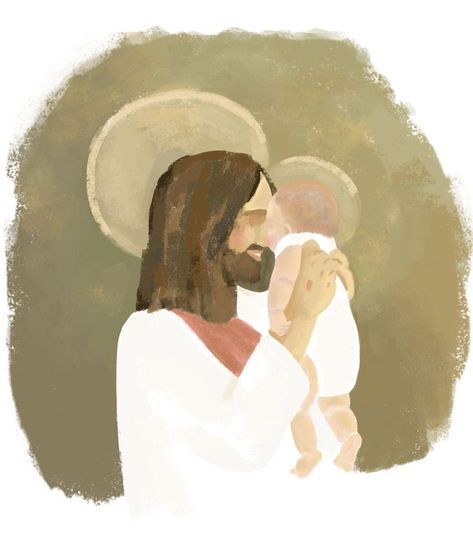GOD THE JUDGE… TO SAVE
“Go, cursed people, out of my sight into the eternal fire, which has been prepared for the devil and his angels” (Mt 25:41). These are the most terrible words that we find in the Gospel and are not the only ones on the lips of Jesus. Luke and Matthew remember others: “I don’t know where you come from! Away from me, all you workers of evil” (Lk 13:27). “The Son of Man will send his angels, and they will weed out of his kingdom all that is scandalous and all who do evil. And these will be thrown into the blazing furnace, where there will be weeping and gnashing of teeth” (Mt 13:41-42). “Bind his hands and feet and throw him into the dark” (Mt 22:13). “But his master will come on the day he does not know, and at the hour he least expects. He will dismiss that servant, and deal with him as with the hypocrites. There will be weeping and gnashing of teeth” (Mt 24:50-51).
These phrases are clearly etched in our minds. They have inspired legions of artists who painted scenes of terror, despair, and torment. They have suggested lyrics such as the Dies irae, the most impressive of the descriptions of the Last Judgment. They have offered inspiration to musicians who have translated into soundsthe anguish of the crucial moment when Christ will pronounce the final judgment.
The judgment of God as the Gospel presents continues to be seen by many today as a dramatic rendering of account. Thus, an encounter with the Lord, far from being desired and expected, is for everyone a bigunknown, even for the righteous. In the face of the One who “who can charge his angels with error” (Job 4:18)who can feel safe? Many Christians already consider a great luck being able to take a few years off frompurgatory.
Is this the justice of God?
To internalize the message, we repeat:
“Let the heavens rejoice and earth be glad because the Lord judges the world… with his justice.”
First Reading: Ezekiel 34:11–12,15-17
In 587 B.C. Jerusalem and its marvelous temple were destroyed, the walls razed to the ground. The Babylonian soldiers gave themselves up to all sorts of violence and barbarism. Someone escaped themassacre by taking refuge in the desert, some other fled into Egypt, many were taken prisoners and exiled toa foreign land. In the village, only the poorest remained: some winemaker, a peasant, a few craftsmen.
After a few years, and among those who remained at home, the more skilled and savvier begin to emerge. They know how to take advantage of the situation of extreme need faced by the majority of the people. They exploit those who are impoverished by misfortunes and woes. They buy, sell, unscrupulously traffic goods and so are able to enrich themselves.
It is at this sad time that the prophecy being proposed to us today is announced. Thinking back to themisfortunes that have struck his people, Ezekiel compares the Israelites to a flock without a shepherd and in disarray; and pronounces at the same time a message of salvation. He does not announce the advent of other kings, who would not have been the best precedents that had led the people to ruin. Instead he promises thatGod will personally take care of his sheep (v. 11), will gather them from all the places where they weredispersed “in a time of cloud and fog” (v. 12), and will take them to good pastures on the high mountains of Israel (v. 15).
Then he directs a threat to those who hoard goods trampling on the rights of the weakest. To his “flock,” the Lord assures: “I will distinguish between one sheep and another; and set apart rams and goats” (v. 17). It is the promise of his prompt intervention in favor of the oppressed, the poor, and the exploited.
Second Reading: 1 Corinthians 15:20-26,28
The rabbis believed that at the coming of the Messiah, a first realm would begin—called the “kingdom of the Messiah”—which would be succeeded by a second, the “kingdom of God.” Paul—educated at their school—had assimilated this opinion and thought that the first kingdom would last as the history of humankind andwould conclude at the end of the world.
It is in this historical perspective that today’s reading is understood. Paul is convinced that gradually the Messiah will destroy, during his reign, all his enemies. His victory will be complete when the last adversary,death, is finally defeated (vv. 25-26).
The enemies whose annihilation is announced are not persons but the forces of evil, all that prevents people to live in fullness their own existence in the world. These are disease, famine, or nakedness, ignorance, slavery, fear, hatred, selfishness, and sin. When these negative realities disappear, then the kingdom of the Messiah can be said as accomplished. For this reason, anyone who is committed against these evils—even if he/she is not Christian, though not a believer—collaborates on the project of the Messiah.
When this kingdom will be established in the world and the enemies of Christ, including death, have beendefeated, then he will hand over to the Father his reign and the kingdom of God that will last for all eternity will begin (v. 28).
After this explanation, the reading’s first verses are clear (vv. 20-24). Christ did not eliminate biological death: the human body, like that of every living thing, wears out and ends up being consumed. He has conquered death because he has deprived it of its meaning of annihilation, total destruction and turned it into abirth to the full and definitive life.
Gospel: Matthew 25:31-46
A God who ruthlessly condemns is, for a Christian, quite embarrassing. One cannot understand how the terrible threats referred to in verses 41-46 can be regarded as “gospel,” that is, as “good news,” as “message of salvation.”
There is an even greater challenge: how can a severe God who appears in today’s passage agree with the Father the whole Gospel speaks about? He who “makes his sun rise on both the wicked and the good and he gives rain to both the just and the unjust,” demanding of his children not to make distinctions between good and evil (Mt 5:43-48). How can one, to a certain point, order a separation which tells us not to do anything? Ifone throws eternal fire to his enemies, he cannot require us to love our enemies (Mt 19:10). Jesus, who came “to seek and to save the lost” (Lk 19:10) and boasts of being “a friend of tax collectors and sinners” (Lk 7:34), will he be able stand against us one day?
The “justice” of this God leaves much to be desired: could the sin of a person (frail, limited, finite creature) be punished with an infinite, “everlasting” punishment? There is no proportion between punishment and failure.If, on the other hand, the person remains free—as is certain—for all eternity, why should wrongdoers persist intheir errors? What will make them so stubborn? Maybe the encounter with God? These are some of the manyquestions that are raised against this passage of the Gospel. These are serious questions, but they might have originated from an incorrect interpretation of the text.
The question arises when we consider the context in which this description of the “trial” is placed. It’s enough to read what follows. After the great scene in which the Son of Man deploys all his power, here is what happens: “In two days’ time it will be Passover and the Son of Man will be handed over to be crucified” (Mt 26:2). It is like being left speechless: from the celebration of triumph one passes to the most ignoble of defeats. They look like two opposing, irreconcilable situations, and yet, these are two glorious moments of a singlevictory, the victory of love. The Christ who “judges” also delivers himself into the hands of those he loves and justly “inasmuch as victim of love” he becomes a judge: He is the “ideal man” after God, the true man, withwhom all have to be compared, even from now on, to see if they are building the life or are laying the groundwork for failure. We will return to the argument. Now let’s examine the text.
In Palestine, at sunset, shepherds tend to separate the sheep from the goats. The latter are more sensitiveto cold and are placed under a roof. The sheep, covered with wool, like the cool of the night and have no problem spending the night in the open. Jesus uses this image, taken from everyday life, to convey his message. To understand it, we must pay attention, first, to the literary genre. A hasty, superficial reading,perhaps a bit naïve, of the Gospel risks to draw theological conclusions that, in the light of a more attentive and careful study, may appear unfounded and even deviant.
The language is typical of the preachers of that time. To stir their listeners, they tended to use stunning images, tremendous punishments, unquenchable fire and eternal penalties. It was said, for example: “As the human race trembles, the beasts are happy, because it goes well with them that humans need not wait for any judgment.” Listen carefully, though: when rabbis spoke of the “fire of Gehenna.” They did not refer to hell, but the fire that burned constantly in the valley surrounding Jerusalem that served as the city dump. The adjective“eternal” did not have the philosophical connotations it has today, but it was popularly used to mean, in general terms, a “long,” “undefined” period.
This Gospel passage is generally regarded as a parable, but this is not accurate. It belongs to the genrecalled judgment scene, found both in the Bible (cf. Dan 7) and in rabbinic literature. The structured schema is always the same: there is a presentation of the judge, accompanied by angels who serve as assistants andsecurity guards, then the convocation of all people, the separation of groups, the sentencing and finally the righteous are rewarded and the wicked punished.
The aim of this literary genre is not to inform about what will happen at the end of the world, but to teachhow to behave today.
As an example, here’s a judgment scene of the rabbinic literature showing an impressive analogy with our text: “In the future world who is judged will be asked: What are your works? If he answers: ‘I fed who was hungry,’ he will be told: ‘This is the Lord’s gate, enter through it’ (Ps 118:20). If he answers: ‘I have given drink to the thirsty,’ he will be told: ‘This is the gate of the Lord come through it;’ if he answers: ‘I have clothed the naked,’ he will be told, ‘This is the gate of the Lord, go through it.’ The same will apply to one who has taken care of the orphan, who has given alms, who has produced works of love (Midrash of the Psalm 118:17).
Referring to the dialogue, it is clear that the rabbis did not intend to reveal the words that God will deliver at the end of the world. They, instead, wanted to instill the values that will serve as a solid foundation for life inthis world.
Let us now examine the structure of the passage in Matthew. It is easy to define. It begins with an introduction (vv. 31-33) followed by two dialogues (vv. 34-40; 41-46) that develop in a parallel and identical way: the king pronounces the sentence (approval in a case and conviction on the other) and explains why.Both cases raise an objection to which the judge responds respectively.
It is also easy to set the message Jesus wants to convey: the years of a person’s life are precious, a treasure to be managed well. No one can go wrong because life is one: Jesus suggests how one must live.
The rabbis said: this world is like a dry land; the future world is like the ocean; if a person does not prepare food on dry land what will he eat on the sea? This world is like a cultivated land, the future world as a wilderness; if a person does not prepare food on cultivated land what will he eat in the desert? He will grind his teeth and bite his flesh; desperate, he will tear his clothes and riff off his hair.
For Jesus, human life is more important than for the rabbis, so he reveals to the disciples the values thatwill provide a secure basis for this human life. What values? It is not hard to spot them because they occupyhalf of the story and are so important that Jesus repeated them four times, at the risk of appearingmonotonous: it is the six works of mercy.
The list of people to help—the hungry, the thirsty, the stranger, the naked, the sick and the imprisoned (vv. 35-36,42-43) was known throughout the Middle East (cf. Is 58:6-7). The chapter 125 of the Book of the Dead is famous. In Egypt, the text, since the second millennium B.C., was placed with the deceased at the time ofburial. This was what he had to testify before the court of Osiris: “I have practiced what gladdens the gods. I have given bread to the hungry, I gave water to the thirsty, I have clothed the naked, I offered a trip to those who had no boat.” The only novelty brought by Jesus is that He identifies with these people: what is done to one of these little ones, is done to him.
The values he suggests are not similar to those for which most people lose their heads, but they are whatreally counts in the eyes of God.
What is the ideal successful person in our society? The one who holds power, who is rich, who can afford to satisfy his every whim, who is wanted by the TV cameras. “Successful people” are an athlete driving the stadiums crazy, the TV star or anyone who has managed to become a character by notoriety or by career.
What is the thought of God? At the conclusion of the story of every person on earth, when each is alonewith oneself and with God, only love will be precious. The life of each one will be considered a success or failure according to the commitment of the person in the elimination of six situations of suffering and poverty: hunger, thirst, exile, nakedness, sickness, imprisonment.
A detail is carefully highlighted in the story: none of those who have done these works of mercy hasrealized of having done them to Christ. Love is true only if it is disinterested, even if it is free of any suspicion of complacency; the one who acts in view of the reward, even that of heaven, does not yet love genuinely.
And the sentence? The rabbis used to repeat their teachings twice to better imprint it in the minds of their disciples. Often, they first presented the message positively and then negatively. They resorted to the familiar“antithetical parallelism,” also used by Jesus (cf. Lk 6:20-26; Mt 7:24-27; Mk 16:16 …).
Our passage is an example of this: the second part (vv. 41-45) adds absolutely nothing to the first; it is a stylistic record to highlight the concept already expressed. What urges Jesus is not to terrorize his listeners, stirring in them their fright of hell, but to indicate with strong images the very serious danger of wasting life—that is what really counts. He does not claim to announce what will happen at the end of the world, but tothink, to open the eyes, and to show God’s judgment on the decisions we take each day.
A simple example may help us better understand what was said. In a jewelry shop, two necklaces are on display, one of pure gold but a little worn out by time, the other of burnished brass but very polished. An inexperienced buyer enters and is attracted and fascinated by the brilliance of the brass necklace. Fortunately, an expert appears and warns him: Beware—he says—don’t waste your money on this bauble or trifle!
This judgment saves the inexperienced buyer. Even in the case that the knowledgeable will use harsh and threatening expressions, his judgment would always be a judgment of salvation.
Believing that the judgment scene described by Jesus refers to the condemnation of sinners to the torments of hell is, at best, risky. Hell exists but is not a place created by God to punish, at the end of life, who has behaved badly. It is a condition of unhappiness and despair resulting from sin. However, one can get out of hell, of sin through Christ: our liberation comes from Christ and his judgment of salvation.
But, in the end, will God not punish the wicked?
A judge seems just to us when, after evaluating their crime, he punishes with equity. But this is not thejustice of God. He’s not just because he rewards or punishes according to our standards and expectations—in this case, there would be no hope for anyone, and all will end convicted—but because he is able to make the wicked righteous (cf. Rom 3:21-26).
The question, therefore, is not who will be counted as sheep and goats at the end of the world, but in what occasions today do we behave as sheep and behave as goats. We are sheep when we love our brother or sister; we are goats when we neglect him or her.
What will happen at the end?
It is truly hard to believe that the good shepherd—from whom no one will be able to snatch even one of his sheep (cf. Jn 10:28)—after leaving us jump like kids to the right and to the left, will not find a way to turn us allinto his lambs.
READ: The Gospel presents the Last Judgment where Christ, the judge, bares our soul to us. Christ the King will finally deliver the Kingdom to the Father, having defeated death once and for all. Matthew offers the final criterion for eternal life: How did I treat others? Nothing matters as much.
PRAY: With the power of the Holy Spirit, pray that you may recognize those in need. Pray that good be done to the world through you without you being aware of it.
ACT: Look for opportunities to meet Jesus’ expectations in your daily life.
REFLECT: How funny or strange it would have been, if the people on the right answered thus: “Yeah, Lord, we knew it was you we were serving when we fed the hungry and clothed the naked.” It doesn’t fit the script, right? The remarkable thing is, these good souls had no idea they were serving Christ when they were engaging in these acts of mercy! Doing good was just their second (or first) nature? Goodness is never so better when done unawares. How about you?



























